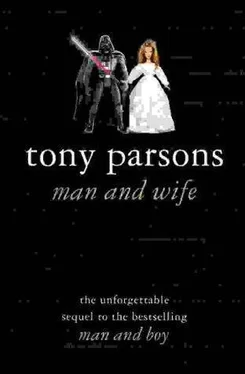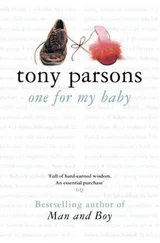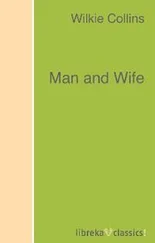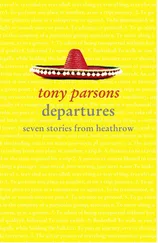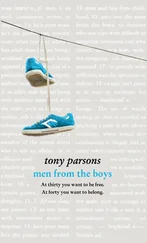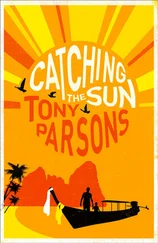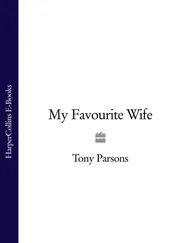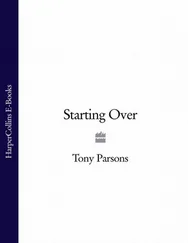These women, my aunts, would never have thought of themselves as career women, but they worked in school kitchens, on the buses, doing the books in a wholesale warehouse, in shops and supermarkets. They worked because they had to.
They didn’t work to be fulfilled or to discover themselves. They worked to pay the rent, they worked because there were always children – my army of cousins – and never much money.
That old family rallied around my mother the night before she had a date with the surgeon. And even though their numbers were diminishing – my old man had been the first to go, but my mother had already lost two of her brothers since then, their hearts giving out on them just when they were ready to enjoy their gardens and their grandchildren – there was still something indomitable about these old Londoners who moved out to the suburbs a lifetime ago.
The house was full of cowboy music and laughter. I was sent to the local shop for more milk and sugar. The cancer leaflets with their terrible drawings of women who had had a breast surgically removed were ignored, lying on the coffee table next to the TV listings and a biography of Shirley Bassey.
When I was growing up, dreaming of escape, plotting a career in television, I believed that my family had lived small lives – never thinking of what was out there beyond their few suburban towns, never caring, never dreaming. But now I saw that they had lived better lives than me – fuller, happier lives, lives with more meaning, where loyalty and decency were taken for granted, where you reacted to cancer by putting on the kettle and a Dolly Parton record. How I envied them now, now that I saw that old dying family as my mother fought for her life, now that it was all too late.
My Aunt Doll talked softly with my mother in the kitchen. Sometimes this old family seemed as segregated as Muslims.
There were things that my mother would never dream of discussing with me, or with her brothers. Things that I only read about in the cancer literature.
Total mastectomy can be the better option when - the tumour is in the centre of the breast or directly behind the nipple; the breast is small and would be distorted by a partial mastectomy; there are several cancerous or precancerous areas in the breast; the woman would rather have the whole breast removed,
I had to read about these things. Perhaps I was glad my mother would not talk to me about them.
In the garden my Uncle Jack, my dad’s brother, Aunt Doll’s small, dark, nattily dressed husband, was smoking a roll-up. Smoking outside the house. A new thing. A small concession to the new century, or perhaps my father’s lung cancer. Cigarettes, once consumed as freely as tea and chocolate digestives in this house, now had to be smoked in the garden. I watched my Uncle Jack smoke, and I saw the ghost of my father’s face in his face.
Uncle Jack’s big black Merc was parked outside the house, a superior set of wheels on a street full of light vans and old Fords. Uncle Jack was a driver – taking businessmen to the airport, waiting for them with his sign at arrivals, smoking his roll-ups outside the car so that the air inside was daisy fresh. Uncle Jack came with me when I went to see my father’s body at the undertaker’s. I wondered if we would have to look at my mother’s body soon.
When the family had all gone, my Aunt Doll and Uncle Jack the last ones to leave, my mum made some tea for the two of us. The light was failing and there would be no more visitors tonight. No more visitors before the operation. Somehow the years had slipped away, and aunts and uncles who once stayed up playing poker until dawn – smoking their cigarettes, drinking their beer and sherry, their laughter ringing all night long – now liked to be home behind locked doors before it was too dark.
’How are you, Mum?’
T’m all right, love. Don’t worry about me. How are you?’
’Me?’
’You and Cyd.’
’Things are not so good right now, Mum.’ I didn’t want to upset her, tonight of all nights. Yet I felt her bravery deserved some of my own. ’I’ve met someone else. Someone I like a lot. And I think Cyd has too.’
I expected my mother – half of that great double act, my parents, the first husband-and-wife team I knew, the pair who cast their giant shadow on every relationship I’d ever had with a woman – to give me a lecture about the sanctity of the wedding vows, the importance of marriage, the horror of divorce. But she didn’t do any of these things.
’Life is very short,’ my mum said. ’You have to take your pleasures where you can.’
My mum stood at the window, watching the street, as if waiting for someone. But everyone had been. There was nobody left to visit. And then I realised. My dad.
She was waiting for my dad.
My mother stood at the window of the house that I had grown up in, the house that she had grown old in, and when I saw her waiting for a husband who would never come home, I loved her more than I could bear.
Waiting. The night before going into hospital for her simple mastectomy, although there was nothing simple about it, nothing simple at all, my mother standing at the window of the old house, looking out at the empty street beyond the net curtains, waiting for my old man.
Waiting to see him come around that bend in the road in his company car, and take her in his hard old tattooed arms one more time, my father come home to tell her she is beautiful her face, her body, all of her – and that he loves her as he has always done, and that everything is going to be all right. Or maybe just to take her in his arms.
I saw Tex.
I had left my mother at the hospital, left her unpacking her small suitcase in a ward where no bed was empty, a ward full of mostly elderly women in their prim nightdresses, with orange squash, boxes of Quality Street and romantic novels on their bedside tables. My father had died in this hospital and I was surprised how familiar it all was to me – the rank smell of hospital cooking in the corridors, the queues everywhere, the defiant crowds of smokers sucking their cigarettes outside the main doors. The smell of food, disease and medicine seemed to have seeped into every brick. What was different now was that I was visiting a ward full of women – women who laughed, women who talked and complained and commiserated in a way that didn’t happen in the ward full of men.
There was a lot to do. A nurse to take my mum’s blood pressure. A chat with the anaesthetist. The surgeon was on his way. And my mum had to change, from her Sunday best two-piece suit into her own Marks & Spencer nightdress. My mum acted as if she was on a day trip to the seaside. She was being too breezy, too jokey, overdoing the jollity, always her defence in the face of crisis.
I kissed her, much too hard, and left. And when I was filling up my car at the local petrol station, that’s when I saw Tex.
Or rather Graham the insurance salesman from Southend, dressed up for his weekly line dancing, drawing amused glances from pale Essex teenagers in their souped-up Escorts as he filled his battered old estate with diesel. And he wasn’t alone. In the passenger seat, there was an elderly cowgirl – some game old dear in rhinestone and buckskin, a ten-gallon hat sitting on top of her Maggie Thatcher perm. My mother’s line-dancing replacement. Or maybe there had been a few since Tex dumped my mum because he found out that she was ill.
I watched him cross the forecourt and enter the garage. When he came out he was carrying a box of After Eight mints and a cheap bouquet of flowers, the kind you can only buy in petrol stations. Maggie Thatcher saw him coming with his gifts and smiled shyly. What a guy. And I moved to go over to him, to take his arm and make him listen while I told him about what was happening to my mum in the hospital down the road that morning, to tell him about the surgery, and to use words like mastectomy, chemotherapy, radiotherapy, lymphoedema, until I saw him squirm with shame at his cowardice.
Читать дальше
Конец ознакомительного отрывка
Купить книгу
